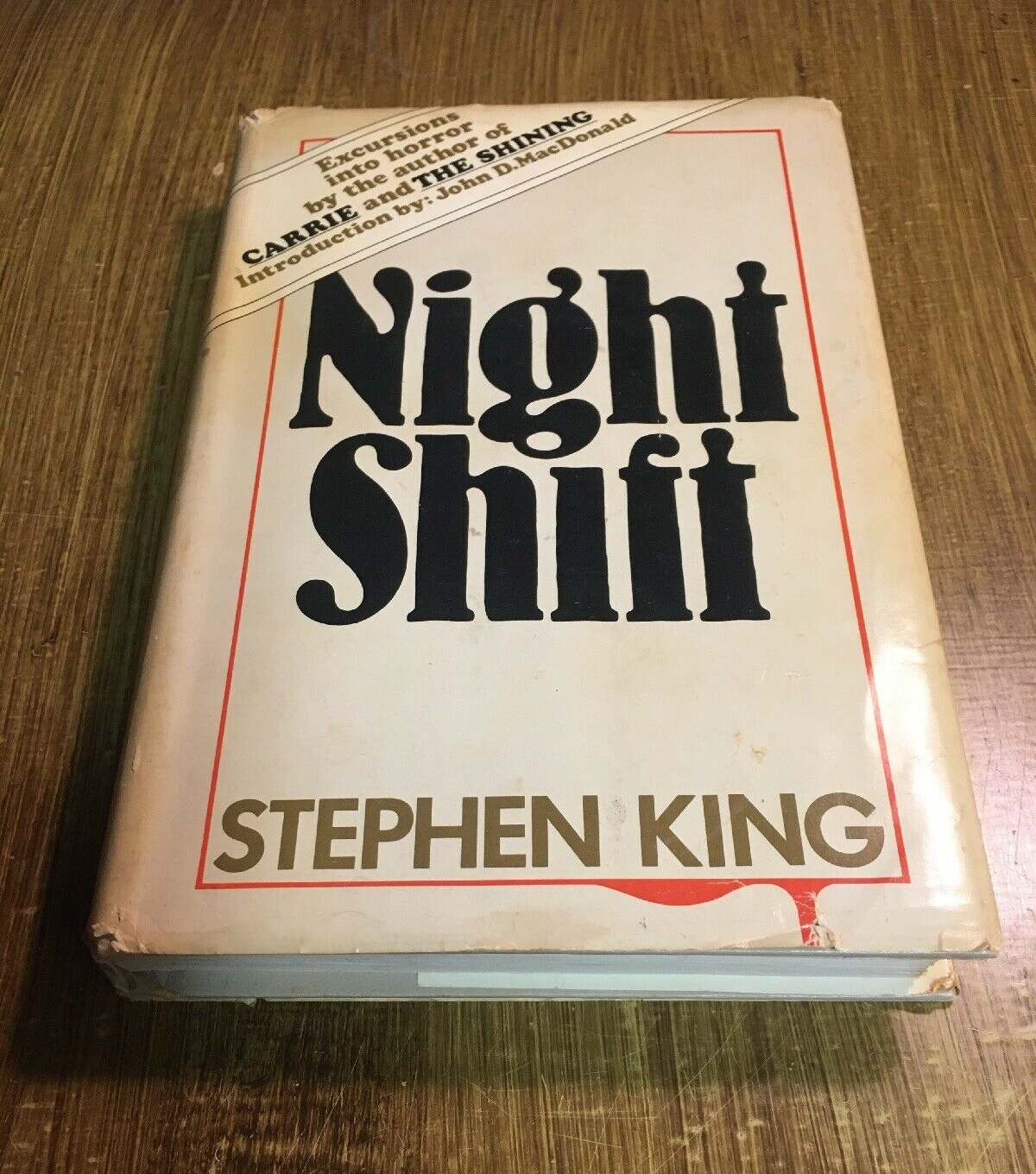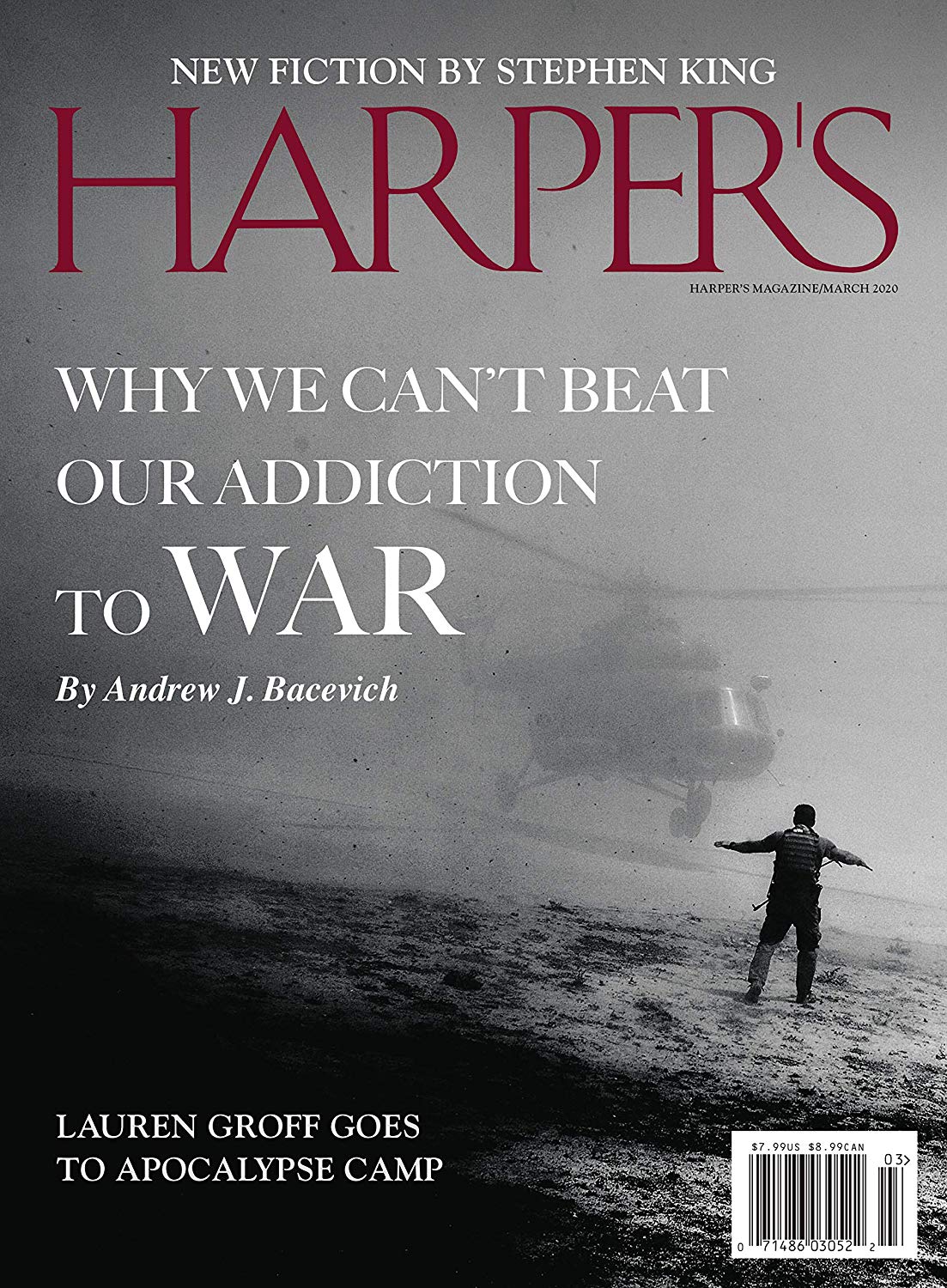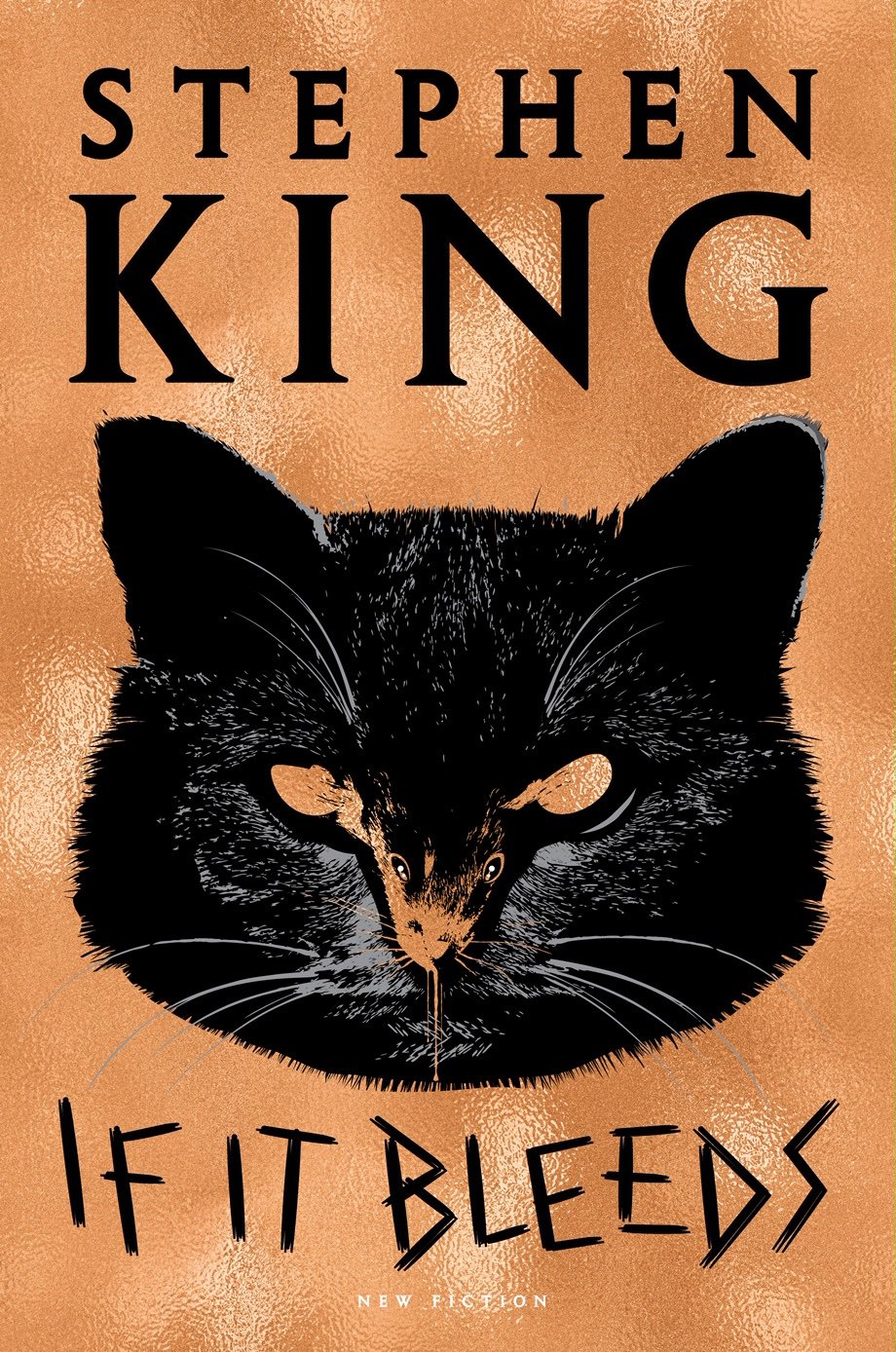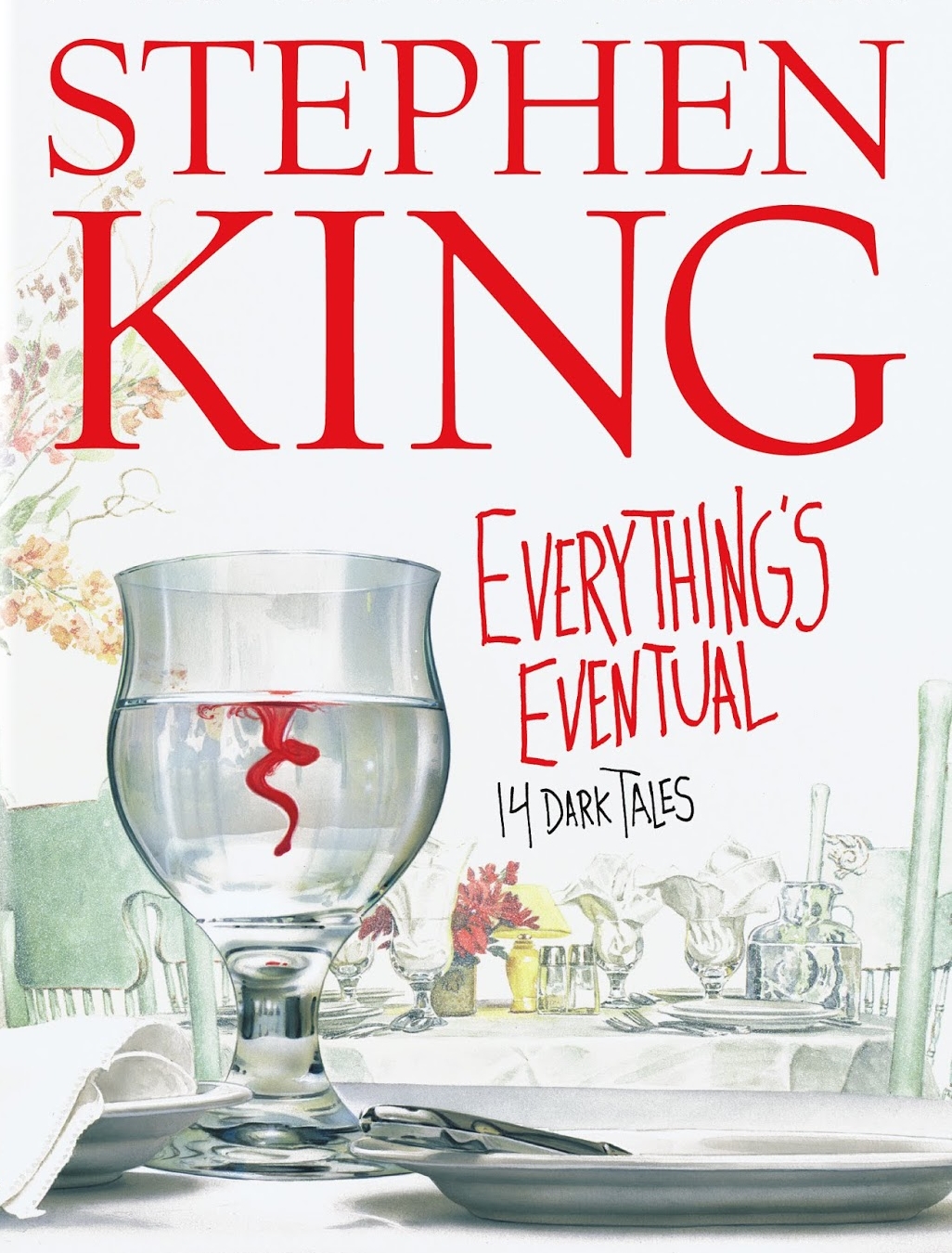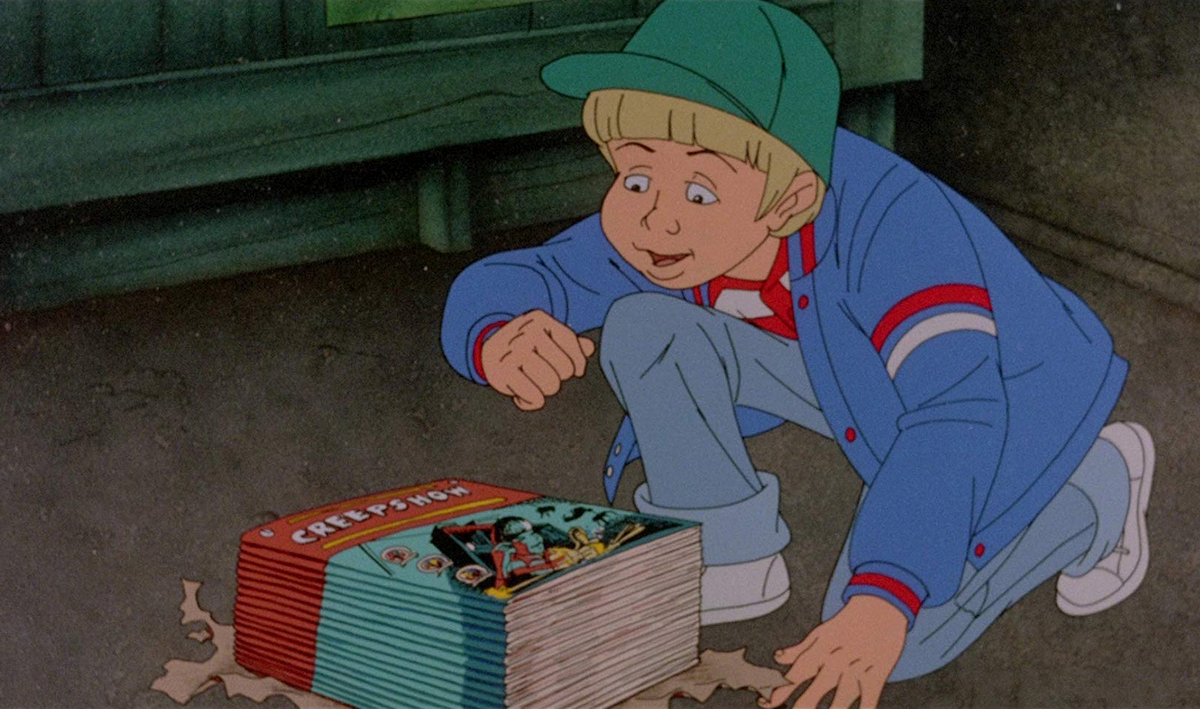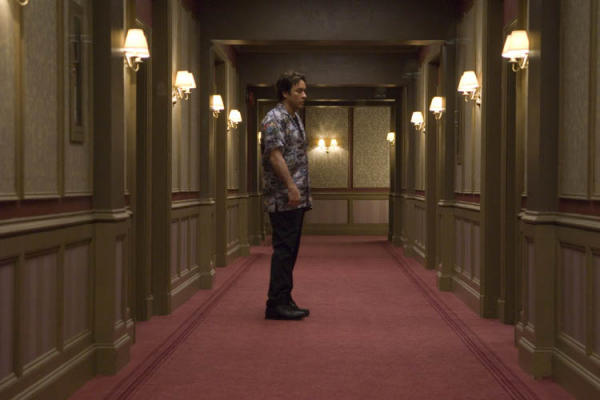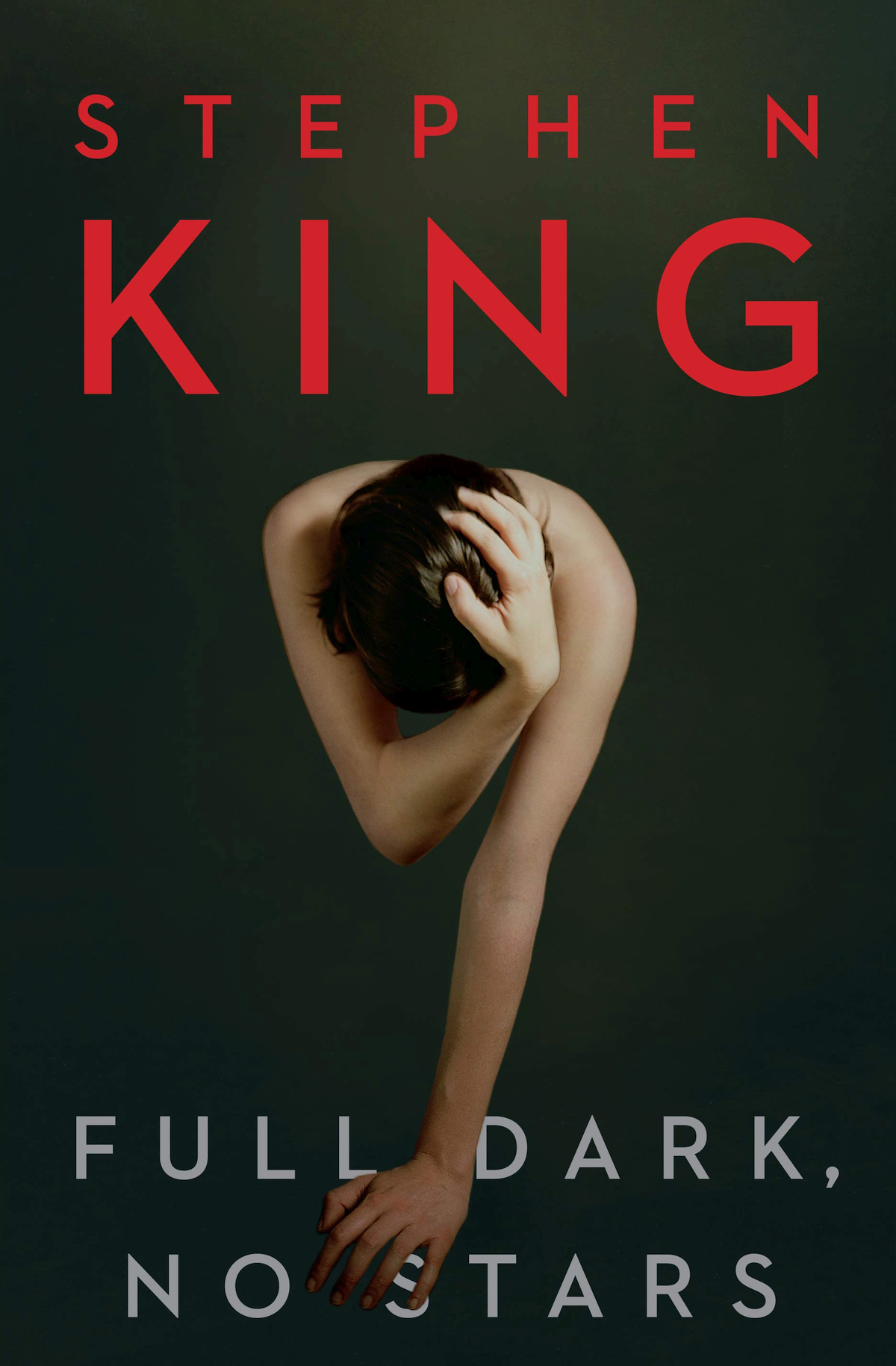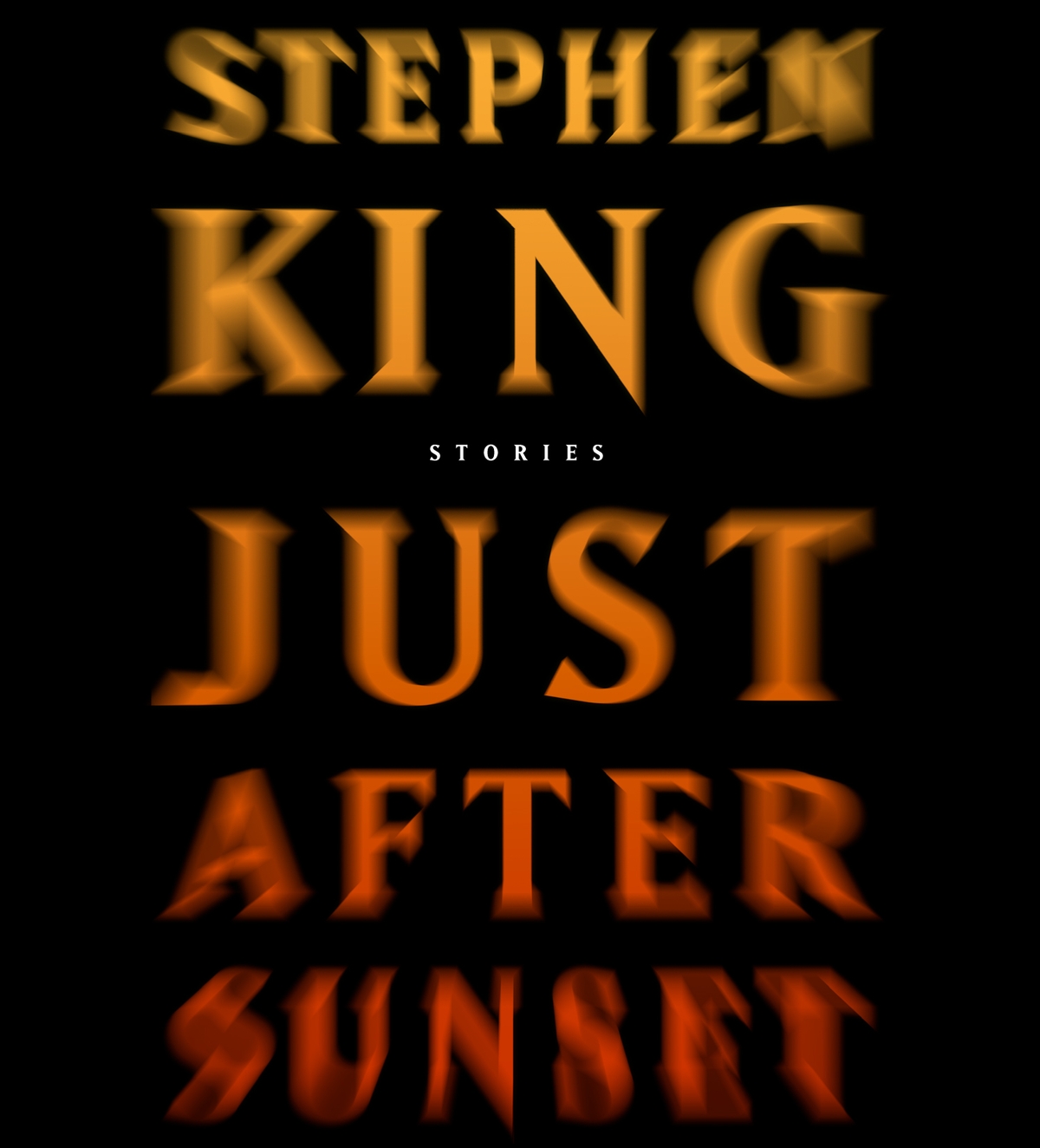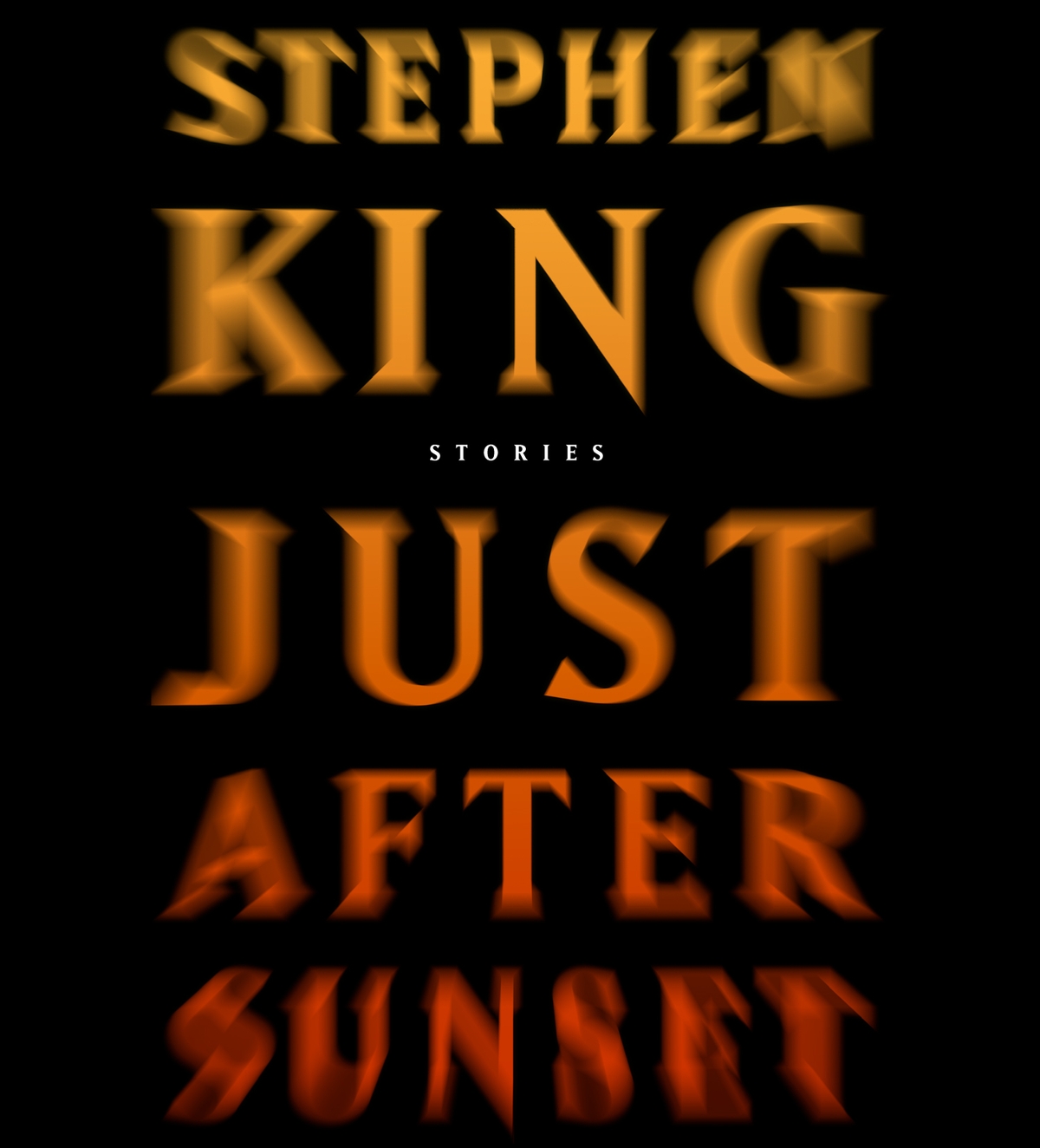It was quarter past ten and Herb Tooklander was thinking of closing for the night when the man in the fancy overcoat and the white, staring face burst into Tookey’s Bar, which lies in the northern part of Falmouth. It was the tenth of January, just about the time most folks are learning to live comfortably with all the New Year’s resolutions they broke, and there was one hell of a northeaster blowing outside. Six inches had come down before dark and it had been going hard and heavy since then. Twice we had seen Billy Larribee go by high in the cab of the town plow, and the second time Tookey ran him out a beer-an act of pure charity my mother would have called it, and my God knows she put down enough of Tookey’s beer in her time. Billy told him they were keeping ahead of it on the main road, but the side ones were closed and apt to stay that way until next morning. The radio in Portland was forecasting another foot and a forty-mile-an-hour wind to pile up the drifts.
There was just Tookey and me in the bar, listening to the wind howl around the eaves and watching it dance the fire around on the hearth. “Have one for the road, Booth,” Tookey says, “I’m gonna shut her down.”
He poured me one and himself one and that’s when the door cracked open and this stranger staggered in, snow up to his shoulders and in his hair, like he had rolled around in confectioner’s sugar. The wind billowed a sand-fine sheet of snow in after him.
“Close the door!” Tookey roars at him. “Was you born in a barn?”
I’ve never seen a man who looked that scared. He was like a horse that’s spent an afternoon eating fire nettles. His eyes rolled toward Tookey and he said, “My wife-my daughter-” and he collapsed on the floor in a dead faint.
“Holy Joe,” Tookey says. “Close the door, Booth, would you?”
I went and shut it, and pushing it against the wind was something of a chore. Tookey was down on one knee holding the fellow’s head up and patting his cheeks. I got over to him and saw right off that it was nasty. His face was fiery red, but there were gray blotches here and there, and when you’ve lived through winters in Maine since the time Woodrow Wilson was President, as I have, you know those gray blotches mean frostbite.
“Fainted,” Tookey said. “Get the brandy off the backbar, will you?”
I got it and came back. Tookey had opened the fellow’s coat. He had come around a little; his eyes were half open and he was muttering something too low to catch.
“Pour a capful,” Tookey says.
“Just a cap?” I asks him.
“That stuff’s dynamite,” Tookey says. “No sense overloading his carb.”
I poured out a capful and looked at Tookey. He nodded. “Straight down the hatch.”
I poured it down. It was a remarkable thing to watch. The man trembled all over and began to cough. His face got redder. His eyelids, which had been at half-mast, flew up like window shades. I was a bit alarmed, but Tookey only sat him up like a big baby and clapped him on the back.
The man started to retch, and Tookey clapped him again.
“Hold onto it,” he says, “that brandy comes dear.”
The man coughed some more, but it was diminishing now. I got my first good look at him. City fellow, all right, and from somewhere south of Boston, at a guess. He was wearing kid gloves, expensive but thin. There were probably some more of those grayish-white patches on his hands, and he would be lucky not to lose a finger or two. His coat was fancy, all right; a three-hundred-dollar job if ever I’d seen one. He was wearing tiny little boots that hardly came up over his ankles, and I began to wonder about his toes.
“Better,” he said.
“All right,” Tookey said. “Can you come over to the fire?”
“My wife and my daughter,” he said. “They’re out there… in the storm.”
“From the way you came in, I didn’t figure they were at home watching the TV,” Tookey said. “You can tell us by the fire as easy as here on the floor. Hook on, Booth.”
He got to his feet, but a little groan came out of him and his mouth twisted down in pain. I wondered about his toes again, and I wondered why God felt he had to make fools from New York City who would try driving around in southern Maine at the height of a northeast blizzard. And I wondered if his wife and his little girl were dressed any warmer than him.
We hiked him across to the fireplace and got him sat down in a rocker that used to be Missus Tookey’s favorite until she passed on in ’74. It was Missus Tookey that was responsible for most of the place, which had been written up in Down East and the Sunday Telegram and even once in the Sunday supplement of the Boston Globe. It’s really more of a public house than a bar, with its big wooden floor, pegged together rather than nailed, the maple bar, the old barn-raftered ceiling, and the monstrous big fieldstone hearth. Missus Tookey started to get some ideas in her head after the Down East article came out, wanted to start calling the place Tookey’s Inn or Tookey’s Rest, and I admit it has sort of a Colonial ring to it, but I prefer plain old Tookey’s Bar. It’s one thing to get uppish in the summer, when the state’s full of tourists, another thing altogether in the winter, when you and your neighbors have to trade together. And there had been plenty of winter nights, like this one, that Tookey and I had spent all alone together, drinking scotch and water or just a few beers. My own Victoria passed on in ’73, and Tookey’s was a place to go where there were enough voices to mute the steady ticking of the deathwatch beetle-even if there was just Tookey and me, it was enough. I wouldn’t have felt the same about it if the place had been Tookey’s Rest. It’s crazy but it’s true.
We got this fellow in front of the fire and he got the shakes harder than ever. He hugged onto his knees and his teeth clattered together and a few drops of clear mucus spilled off the end of his nose. I think he was starting to realize that another fifteen minutes out there might have been enough to kill him. It’s not the snow, it’s the wind-chill factor. It steals your heat.
“Where did you go off the road?” Tookey asked him.
“S-six miles s-s-south of h-here,” he said.
Tookey and I stared at each other, and all of a sudden I felt cold. Cold all over.
“You sure?” Tookey demanded. “You came six miles through the snow?”
He nodded. “I checked the odometer when we came through t-town. I was following directions… going to see my wife’s s-sister… in Cumberland… never been there before… we’re from New Jersey…”
New Jersey. If there’s anyone more purely foolish than a New Yorker it’s a fellow from New Jersey.
“Six miles, you’re sure?” Tookey demanded.
“Pretty sure, yeah. I found the turnoff but it was drifted in… it was…”
Tookey grabbed him. In the shifting glow of the fire his face looked pale and strained, older than his sixty-six years by ten. “You made a right turn?”
“Right turn, yeah. My wife-”
“Did you see a sign?”
“Sign?” He looked up at Tookey blankly and wiped the end of his nose. “Of course I did. It was on my instructions. Take Jointner Avenue through Jerusalem’s Lot to the 295 entrance ramp.” He looked from Tookey to me and back to Tookey again. Outside, the wind whistled and howled and moaned through the eaves. “Wasn’t that right, mister?”
“The Lot,” Tookey said, almost too soft to hear. “Oh my God.”
“What’s wrong?” the man said. His voice was rising. “Wasn’t that right? I mean, the road looked drifted in, but I thought… if there’s a town there, the plows will be out and… and then I…”
He just sort of tailed off.
“Booth,” Tookey said to me, low. “Get on the phone. Call the sheriff.”
“Sure,” this fool from New Jersey says, “that’s right. What’s wrong with you guys, anyway? You look like you saw a ghost.”
Tookey said, “No ghosts in the Lot, mister. Did you tell them to stay in the car?”
“Sure I did,” he said, sounding injured. “I’m not crazy.”
Well, you couldn’t have proved it by me.
“What’s your name?” I asked him. “For the sheriff.”
“Lumley,” he says. “Gerard Lumley.”
He started in with Tookey again, and I went across to the telephone. I picked it up and heard nothing but dead silence. I hit the cutoff buttons a couple of times. Still nothing.
I came back. Tookey had poured Gerard Lumley another tot of brandy, and this one was going down him a lot smoother.
“Was he out?” Tookey asked.
“Phone’s dead.”
“Hot damn,” Tookey says, and we look at each other. Outside the wind gusted up, throwing snow against the windows.
Lumley looked from Tookey to me and back again.
“Well, haven’t either of you got a car?” he asked. The anxiety was back in his voice. “They’ve got to run the engine to run the heater. I only had about a quarter of a tank of gas, and it took me an hour and a half to… Look, will you answer me?” He stood up and grabbed Tookey’s shirt.
“Mister,” Tookey says, “I think your hand just ran away from your brains, there.”
Lumley looked at his hand, at Tookey, then dropped it. “Maine,” he hissed. He made it sound like a dirty word about somebody’s mother. “All right,” he said. “Where’s the nearest gas station? They must have a tow truck-”
“Nearest gas station is in Falmouth Center,” I said. “That’s three miles down the road from here.”
“Thanks,” he said, a bit sarcastic, and headed for the door, buttoning his coat.
“Won’t be open, though,” I added.
He turned back slowly and looked at us.
“What are you talking about, old man?”
“He’s trying to tell you that the station in the Center belongs to Billy Larribee and Billy’s out driving the plow, you damn fool,” Tookey says patiently. “Now why don’t you come back here and sit down, before you bust a gut?”
He came back, looking dazed and frightened. “Are you telling me you can’t… that there isn’t…?”
“I ain’t telling you nothing,” Tookey says. “You’re doing all the telling, and if you stopped for a minute, we could think this over.”
“What’s this town, Jerusalem’s Lot?” he asked. “Why was the road drifted in? And no lights on anywhere?”
I said, “Jerusalem’s Lot burned out two years back.”
“And they never rebuilt?” He looked like he didn’t believe it.
“It appears that way,” I said, and looked at Tookey. “What are we going to do about this?”
“Can’t leave them out there,” he said.
I got closer to him. Lumley had wandered away to look out the window into the snowy night.
“What if they’ve been got at?” I asked.
“That may be,” he said. “But we don’t know it for sure. I’ve got my Bible on the shelf. You still wear your Pope’s medal?”
I pulled the crucifix out of my shirt and showed him. I was born and raised Congregational, but most folks who live around the Lot wear something-crucifix, St. Christopher’s medal, rosary, something. Because two years ago, in the span of one dark October month, the Lot went bad. Sometimes, late at night, when there were just a few regulars drawn up around Tookey’s fire, people would talk it over. Talk around it is more like the truth. You see, people in the Lot started to disappear. First a few, then a few more, than a whole slew. The schools closed. The town stood empty for most of a year. Oh, a few people moved in-mostly damn fools from out of state like this fine specimen here-drawn by the low property values, I suppose. But they didn’t last. A lot of them moved out a month or two after they’d moved in. The others… well, they disappeared. Then the town burned flat. It was at the end of a long dry fall. They figure it started up by the Marsten House on the hill that overlooked Jointner Avenue, but no one knows how it started, not to this day. It burned out of control for three days. After that, for a time, things were better. And then they started again.
I only heard the word “vampires” mentioned once. A crazy pulp truck driver named Richie Messina from over Freeport way was in Tookey’s that night, pretty well liquored up. “Jesus Christ,” this stampeder roars, standing up about nine feet tall in his wool pants and his plaid shirt and his leather-topped boots. “Are you all so damn afraid to say it out? Vampires! That’s what you’re all thinking, ain’t it? Jesus-jumped-up-Christ in a chariot-driven sidecar! Just like a bunch of kids scared of the movies! You know what there is down there in ‘Salem’s Lot? Want me to tell you? Want me to tell you?”
“Do tell, Richie,” Tookey says. It had got real quiet in the bar. You could hear the fire popping, and outside the soft drift of November rain coming down in the dark. “You got the floor.”
“What you got over there is your basic wild dog pack,” Richie Messina tells us. “That’s what you got. That and a lot of old women who love a good spook story. Why, for eighty bucks I’d go up there and spend the night in what’s left of that haunted house you’re all so worried about. Well, what about it? Anyone want to put it up?”
But nobody would. Richie was a loudmouth and a mean drunk and no one was going to shed any tears at his wake, but none of us were willing to see him go into ‘Salem’s Lot after dark.
“Be screwed to the bunch of you,” Richie says. “I got my four-ten in the trunk of my Chevy, and that’ll stop anything in Falmouth, Cumberland, or Jerusalem’s Lot. And that’s where I’m goin’.”
He slammed out of the bar and no one said a word for a while. Then Lamont Henry says, real quiet, “That’s the last time anyone’s gonna see Richie Messina. Holy God.” And Lamont, raised to be a Methodist from his mother’s knee, crossed himself.
“He’ll sober off and change his mind,” Tookey said, but he sounded uneasy. “He’ll be back by closin’ time, makin’ out it was all a joke.”
But Lamont had the right of that one, because no one ever saw Richie again. His wife told the state cops she thought he’d gone to Florida to beat a collection agency, but you could see the truth of the thing in her eyes-sick, scared eyes. Not long after, she moved away to Rhode Island. Maybe she thought Richie was going to come after her some dark night. And I’m not the man to say he might not have done.
Now Tookey was looking at me and I was looking at Tookey as I stuffed my crucifix back into my shirt. I never felt so old or so scared in my life.
Tookey said again, “We can’t just leave them out there, Booth.”
“Yeah. I know.”
We looked at each other for a moment longer, and then he reached out and gripped my shoulder. “You’re a good man, Booth.” That was enough to buck me up some. It seems like when you pass seventy, people start forgetting that you are a man, or that you ever were.
Tookey walked over to Lumley and said, “I’ve got a four-wheel-drive Scout. I’ll get it out.”
“For God’s sake, man, why didn’t you say so before?” He had whirled around from the window and was staring angrily at Tookey. “Why’d you have to spend ten minutes beating around the bush?”
Tookey said, very softly, “Mister, you shut your jaw. And if you get the urge to open it, you remember who made that turn onto an unplowed road in the middle of a goddamned blizzard.”
He started to say something, and then shut his mouth. Thick color had risen up in his cheeks. Tookey went out to get his Scout out of the garage. I felt around under the bar for his chrome flask and filled it full of brandy. Figured we might need it before this night was over.
Maine blizzard-ever been out in one?
The snow comes flying so thick and fine that it looks like sand and sounds like that, beating on the sides of your car or pickup. You don’t want to use your high beams because they reflect off the snow and you can’t see ten feet in front of you. With the low beams on, you can see maybe fifteen feet. But I can live with the snow. It’s the wind I don’t like, when it picks up and begins to howl, driving the snow into a hundred weird flying shapes and sounding like all the hate and pain and fear in the world. There’s death in the throat of a snowstorm wind, white death-and maybe something beyond death. That’s no sound to hear when you’re tucked up all cozy in your own bed with the shutters bolted and the doors locked. It’s that much worse if you’re driving. And we were driving smack into ‘Salem’s Lot.
“Hurry up a little, can’t you?” Lumley asked.
I said, “For a man who came in half frozen, you’re in one hell of a hurry to end up walking again.”
He gave me a resentful, baffled look and didn’t say anything else. We were moving up the highway at a steady twenty-five miles an hour. It was hard to believe that Billy Larribee had just plowed this stretch an hour ago; another two inches had covered it, and it was drifting in. The strongest gusts of wind rocked the Scout on her springs. The headlights showed a swirling white nothing up ahead of us. We hadn’t met a single car.
About ten minutes later Lumley gasps: “Hey! What’s that?”
He was pointing out my side of the car; I’d been looking dead ahead. I turned, but was a shade too late. I thought I could see some sort of slumped form fading back from the car, back into the snow, but that could have been imagination.
“What was it? A deer?” I asked.
“I guess so,” he says, sounding shaky. “But its eyes-they looked red.” He looked at me. “Is that how a deer’s eyes look at night?” He sounded almost as if he were pleading.
“They can look like anything,” I says, thinking that might be true, but I’ve seen a lot of deer at night from a lot of cars, and never saw any set of eyes reflect back red.
Tookey didn’t say anything.
About fifteen minutes later, we came to a place where the snowbank on the right of the road wasn’t so high because the plows are supposed to raise their blades a little when they go through an intersection.
“This looks like where we turned,” Lumley said, not sounding too sure about it. “I don’t see the sign-”
“This is it,” Tookey answered. He didn’t sound like himself at all. “You can just see the top of the signpost.”
“Oh. Sure.” Lumley sounded relieved. “Listen, Mr. Tooklander, I’m sorry about being so short back there. I was cold and worried and calling myself two hundred kinds of fool. And I want to thank you both-”
“Don’t thank Booth and me until we’ve got them in this car,” Tookey said. He put the Scout in four-wheel drive and slammed his way through the snowbank and onto Jointner Avenue, which goes through the Lot and out to 295. Snow flew up from the mudguards. The rear end tried to break a little bit, but Tookey’s been driving through snow since Hector was a pup. He jockeyed it a bit, talked to it, and on we went. The headlights picked out the bare indication of other tire tracks from time to time, the ones made by Lumley’s car, and then they would disappear again. Lumley was leaning forward, looking for his car. And all at once Tookey said, “Mr. Lumley.”
“What?” He looked around at Tookey.
“People around these parts are kind of superstitious about ‘Salem’s Lot,” Tookey says, sounding easy enough-but I could see the deep lines of strain around his mouth, and the way his eyes kept moving from side to side. “If your people are in the car, why, that’s fine. We’ll pack them up, go back to my place, and tomorrow, when the storm’s over, Billy will be glad to yank your car out of the snowbank. But if they’re not in the car-”
“Not in the car?” Lumley broke in sharply. “Why wouldn’t they be in the car?”
“If they’re not in the car,” Tookey goes on, not answering, “we’re going to turn around and drive back to Falmouth Center and whistle for the sheriff. Makes no sense to go wallowing around at night in a snowstorm anyway, does it?”
“They’ll be in the car. Where else would they be?”
I said, “One other thing, Mr. Lumley. If we should see anybody, we’re not going to talk to them. Not even if they talk to us. You understand that?”
Very slow, Lumley says, “Just what are these superstitions?”
Before I could say anything-God alone knows what I would have said-Tookey broke in. “We’re there.”
We were coming up on the back end of a big Mercedes. The whole hood of the thing was buried in a snowdrift, and another drift had socked in the whole left side of the car. But the taillights were on and we could see exhaust drifting out of the tailpipe.
“They didn’t run out of gas, anyway,” Lumley said.
Tookey pulled up and pulled on the Scout’s emergency brake. “You remember what Booth told you, Lumley.”
“Sure, sure.” But he wasn’t thinking of anything but his wife and daughter. I don’t see how anybody could blame him, either.
“Ready, Booth?” Tookey asked me. His eyes held on mine, grim and gray in the dashboard lights.
“I guess I am,” I said.
We all got out and the wind grabbed us, throwing snow in our faces. Lumley was first, bending into the wind, his fancy topcoat billowing out behind him like a sail. He cast two shadows, one from Tookey’s headlights, the other from his own taillights. I was behind him, and Tookey was a step behind me. When I got to the trunk of the Mercedes, Tookey grabbed me.
“Let him go,” he said.
“Janey! Francie!” Lumley yelled. “Everything okay?” He pulled open the driver’s-side door and leaned in. “Everything-”
He froze to a dead stop. The wind ripped the heavy door right out of his hand and pushed it all the way open.
“Holy God, Booth,” Tookey said, just below the scream of the wind. “I think it’s happened again.”
Lumley turned back toward us. His face was scared and bewildered, his eyes wide. All of a sudden he lunged toward us through the snow, slipping and almost falling. He brushed me away like I was nothing and grabbed Tookey.
“How did you know?” he roared. “Where are they? What the hell is going on here?”
Tookey broke his grip and shoved past him. He and I looked into the Mercedes together. Warm as toast it was, but it wasn’t going to be for much longer. The little amber low-fuel light was glowing. The big car was empty. There was a child’s Barbie doll on the passenger’s floormat. And a child’s ski parka was crumpled over the seatback.
Tookey put his hands over his face… and then he was gone. Lumley had grabbed him and shoved him right back into the snowbank. His face was pale and wild. His mouth was working as if he had chewed down on some bitter stuff he couldn’t yet unpucker enough to spit out. He reached in and grabbed the parka.
“Francie’s coat?” he kind of whispered. And then loud, bellowing:
“Francie’s coat!” He turned around, holding it in front of him by the little fur-trimmed hood. He looked at me, blank and unbelieving. “She can’t be out without her coat on, Mr. Booth. Why… why… she’ll freeze to death.”
“Mr. Lumley-”
He blundered past me, still holding the parka, shouting:
“Francie! Janey! Where are you? Where are youuu?”
I gave Tookey my hand and pulled him onto his feet. “Are you all-”
“Never mind me,” he says. “We’ve got to get hold of him, Booth.”
We went after him as fast as we could, which wasn’t very fast with the snow hip-deep in some places. But then he stopped and we caught up to him.
“Mr. Lumley-” Tookey started, laying a hand on his shoulder.
“This way,” Lumley said. “This is the way they went. Look!”
We looked down. We were in a kind of dip here, and most of the wind went right over our heads. And you could see two sets of tracks, one large and one small, just filling up with snow. If we had been five minutes later, they would have been gone.
He started to walk away, his head down, and Tookey grabbed him back. “No! No, Lumley!”
Lumley turned his wild face up to Tookey’s and made a fist. He drew it back… but something in Tookey’s face made him falter. He looked from Tookey to me and then back again.
“She’ll freeze,” he said, as if we were a couple of stupid kids. “Don’t you get it? She doesn’t have her jacket on and she’s only seven years old-”
“They could be anywhere,” Tookey said. “You can’t follow those tracks. They’ll be gone in the next drift.”
“What do you suggest?” Lumley yells, his voice high and hysterical. “If we go back to get the police, she’ll freeze to death! Francie and my wife!”
“They may be frozen already,” Tookey said. His eyes caught Lumley’s. “Frozen, or something worse.”
“What do you mean?” Lumley whispered. “Get it straight, goddamn it! Tell me!”
“Mr. Lumley,” Tookey says, “there’s something in the Lot-”
But I was the one who came out with it finally, said the word I never expected to say. “Vampires, Mr. Lumley. Jerusalem’s Lot is full of vampires. I expect that’s hard for you to swallow-”
He was staring at me as if I’d gone green. “Loonies,” he whispers. “You’re a couple of loonies.” Then he turned away, cupped his hands around his mouth, and bellowed,
“FRANCIE! JANEY!” He started floundering off again. The snow was up to the hem of his fancy coat.
I looked at Tookey. “What do we do now?”
“Follow him,” Tookey says. His hair was plastered with snow, and he did look a little bit loony. “I can’t just leave him out here. Booth. Can you?”
“No,” I says. “Guess not.”
So we started to wade through the snow after Lumley as best we could. But he kept getting further and further ahead. He had his youth to spend, you see. He was breaking the trail, going through that snow like a bull. My arthritis began to bother me something terrible, and I started to look down at my legs, telling myself: A little further, just a little further, keep goin’, damn it, keep goin’…
I piled right into Tookey, who was standing spread-legged in a drift. His head was hanging and both of his hands were pressed to his chest.
“Tookey,” I says, “you okay?”
“I’m all right,” he said, taking his hands away. “We’ll stick with him, Booth, and when he fags out he’ll see reason.”
We topped a rise and there was Lumley at the bottom, looking desperately for more tracks. Poor man, there wasn’t a chance he was going to find them. The wind blew straight across down there where he was, and any tracks would have been rubbed out three minutes after they was made, let alone a couple of hours.
He raised his head and screamed into the night:
“FRANCIE! JANEY! FOR GOD’S SAKE!” And you could hear the desperation in his voice, the terror, and pity him for it. The only answer he got was the freight-train wail of the wind. It almost seemed to be laughin’ at him, saying: I took them Mister New Jersey with your fancy car and camel’s-hair topcoat. I took them and I rubbed out their tracks and by morning I’ll have them just as neat and frozen as two strawberries in a deepfreeze…
“Lumley!” Tookey bawled over the wind. “Listen, you never mind vampires or boogies or nothing like that, but you mind this! You’re just making it worse for them! We got to get the-”
And then there was an answer, a voice coming out of the dark like little tinkling silver bells, and my heart turned cold as ice in a cistern.
“Jerry… Jerry, is that you?”
Lumley wheeled at the sound. And then she came, drifting out of the dark shadows of a little copse of trees like a ghost.
She was a city woman, all right, and right then she seemed like the most beautiful woman I had ever seen. I felt like I wanted to go to her and tell her how glad I was she was safe after all. She was wearing a heavy green pullover sort of thing, a poncho, I believe they’re called. It floated all around her, and her dark hair streamed out in the wild wind like water in a December creek, just before the winter freeze stills it and locks it in.
Maybe I did take a step toward her, because I felt Tookey’s hand on my shoulder, rough and warm. And still-how can I say it?-I yearned after her, so dark and beautiful with that green poncho floating around her neck and shoulders, as exotic and strange as to make you think of some beautiful woman from a Walter de la Mare poem.
“Janey!” Lumley cried.
“Janey!” He began to struggle through the snow toward her, his arms outstretched.
“No!” Tookey cried.
“No, Lumley!”
He never even looked… but she did. She looked up at us and grinned. And when she did, I felt my longing, my yearning turn to horror as cold as the grave, as white and silent as bones in a shroud. Even from the rise we could see the sullen red glare in those eyes. They were less human than a wolf’s eyes. And when she grinned you could see how long her teeth had become. She wasn’t human anymore. She was a dead thing somehow come back to life in this black howling storm.
Tookey made the sign of the cross at her. She flinched back… and then grinned at us again. We were too far away, and maybe too scared.
“Stop it!” I whispered. “Can’t we stop it?”
“Too late, Booth!” Tookey says grimly.
Lumley had reached her. He looked like a ghost himself, coated in snow like he was. He reached for her… and then he began to scream. I’ll hear that sound in my dreams, that man screaming like a child in a nightmare. He tried to back away from her, but her arms, long and bare and as white as the snow, snaked out and pulled him to her. I could see her cock her head and then thrust it forward-
“Booth!” Tookey said hoarsely. “We’ve got to get out of here!”
And so we ran. Ran like rats, I suppose some would say, but those who would weren’t there that night. We fled back down along our own backtrail, falling down, getting up again, slipping and sliding. I kept looking back over my shoulder to see if that woman was coming after us, grinning that grin and watching us with those red eyes.
We got back to the Scout and Tookey doubled over, holding his chest. “Tookey!” I said, badly scared. “What-”
“Ticker,” he said. “Been bad for five years or more. Get me around in the shotgun seat, Booth, and then get us the hell out of here.”
I hooked an arm under his coat and dragged him around and somehow boosted him up and in. He leaned his head back and shut his eyes. His skin was waxy-looking and yellow.
I went back around the hood of the truck at a trot, and I damned near ran into the little girl. She was just standing there beside the driver’s-side door, her hair in pigtails, wearing nothing but a little bit of a yellow dress.
“Mister,” she said in a high, clear voice, as sweet as morning mist, “won’t you help me find my mother? She’s gone and I’m so cold-”
“Honey,” I said, “honey, you better get in the truck. Your mother’s-”
I broke off, and if there was ever a time in my life I was close to swooning, that was the moment. She was standing there, you see, but she was standing on top of the snow and there were no tracks, not in any direction.
She looked up at me then, Lumley’s daughter Francie. She was no more than seven years old, and she was going to be seven for an eternity of nights. Her little face was a ghastly corpse white, her eyes a red and silver that you could fall into. And below her jaw I could see two small punctures like pinpricks, their edges horribly mangled.
She held out her arms at me and smiled. “Pick me up, mister,” she said softly. “I want to give you a kiss. Then you can take me to my mommy.”
I didn’t want to, but there was nothing I could do. I was leaning forward, my arms outstretched. I could see her mouth opening, I could see the little fangs inside the pink ring of her lips. Something slipped down her chin, bright and silvery, and with a dim, distant, faraway horror, I realized she was drooling.
Her small hands clasped themselves around my neck and I was thinking: Well, maybe it won’t be so bad, not so bad, maybe it won’t be so awful after a while-when something black flew out of the Scout and struck her on the chest. There was a puff of strange-smelling smoke, a flashing glow that was gone an instant later, and then she was backing away, hissing. Her face was twisted into a vulpine mask of rage, hate, and pain. She turned sideways and then… and then she was gone. One moment she was there, and the next there was a twisting knot of snow that looked a little bit like a human shape. Then the wind tattered it away across the fields.
“Booth!” Tookey whispered. “Be quick, now!” And I was. But not so quick that I didn’t have time to pick up what he had thrown at that little girl from hell. His mother’s Douay Bible.
That was some time ago. I’m a sight older now, and I was no chicken then. Herb Tooklander passed on two years ago. He went peaceful, in the night. The bar is still there, some man and his wife from Waterville bought it, nice people, and they’ve kept it pretty much the same. But I don’t go by much. It’s different somehow with Tookey gone.
Things in the Lot go on pretty much as they always have. The sheriff found that fellow Lumley’s car the next day, out of gas, the battery dead. Neither Tookey nor I said anything about it. What would have been the point? And every now and then a hitchhiker or a camper will disappear around there someplace, up on Schoolyard Hill or out near the Harmony Hill cemetery. They’ll turn up the fellow’s packsack or a paperback book all swollen and bleached out by the rain or snow, or some such. But never the people.
I still have bad dreams about that stormy night we went out there. Not about the woman so much as the little girl, and the way she smiled when she held her arms up so I could pick her up. So she could give me a kiss. But I’m an old man and the time comes soon when dreams are done.
You may have an occasion to be traveling in southern Maine yourself one of these days. Pretty part of the countryside. You may even stop by Tookey’s Bar for a drink. Nice place. They kept the name just the same. So have your drink, and then my advice to you is to keep right on moving north. Whatever you do, don’t go up that road to Jerusalem’s Lot.
Especially not after dark.
There’s a little girl somewhere out there. And I think she’s still waiting for her good-night kiss.
